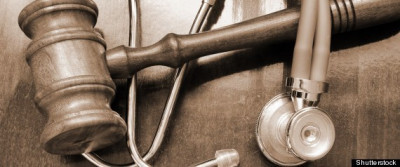Liability: Failure To Diagnose Oral Cancer

A recent article titled “Prevention vs. Prosecution” explains the liabilities of the dental office. According to risk management statistics, Every Dental Office will receive at least one malpractice lawsuit during the lifespan of the office. Failure to diagnose Oral Cancer is one of the top malpractice lawsuits, and is growing larger with the increase in oral cancer cases. You may be surprised to learn who is at risk of lawsuit.
During each malpractice lawsuit, not only are the office and owner listed as defendants, but the hygienist is listed as well. Yes, a Dental Hygienist can be named a co-defendant in a lawsuit for Failure to diagnose oral cancer. By virtue of their job description and training, Dental Hygienists are on the front line for oral cancer detection.
According to the “Prevention vs. Protection” article listed in RDHmag.com (Vol. 28, ed. 10), the common causes of liability for failure to diagnose (or even delayed diagnosis) oral cancer, fall into four categories:
1. Errors in Clinical Judgment
2. Failure to follow up
3. Failure to screen patients appropriately
4. Evaluation delays
A proper screening for oral cancer includes a visual and tactile screening, termed the “COE” for Conventional Oral Exam. This includes manual palpation extra-orally of the lymph nodes on the neck and jaw area, and intra-orally throughout the mouth. Then a visual exam occurs, looking throughout the mouth with white light for any abnormal lesions, pulling the tongue out to view the base of the tongue and the pharyngeal area.
Literature suggests that a COE is not sufficient for screening and it is suggested that adjunctive screening methods are needed to augment the COE (Epstein et al, JADA 2012, 143:1332-1342).
A review of the patient history file is essential as well, noting any risk factors that could increase their risk for oral cancer. Risk factors include previous history of cancer, alcohol consumption, tobacco use (including smoking), and HPV infection. Higher risk patients should be screened more often for oral lesions.
All suspect lesions should be monitored and examined thoroughly. The conclusion from most recent research is that there is not perfect oral cancer screening protocol to date. Any patient with a lesion you are concerned about should be “kept under a magnifying glass” until the lesions resolves or a diagnosis is made.
To Subscribe To Our Newsletter, Please Click Here.

